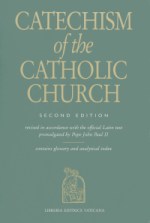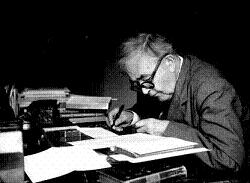Jamey Bennett reinvisions some muddled five year old musings on a church service bulletin
I was sitting in church. It was Maundy Thursday, 2003. Presbyterian church, Nashville. My mind was wandering. I began to doodle on the bulletin.
I didn't admit it at the time, but I was living a double-life of sorts -- or at least a wavering life. I was editor of an Online Christian magazine with a decent following. It was there that I droned on and on about the goodness of God. I actively proclaimed the name of Jesus from concert stages across the country with my music group. I was worshiping regularly at my own church and sporadically at other people's church services. I was preparing to teach in a Christian preschool in a few weeks, as well. My prayer life wasn't even half-bad, even if it was somewhat repetitive and often involved what some call the "Jesus Prayer" – Lord Jesus, Son of God, have mercy on me a sinner.
Save for the prayer, my faith was mostly relegated to the abstract.
And all the while I was struggling for faith, struggling to get a grip, and struggling to live a holy life. I was struggling to keep myself pure, struggling not to over-indulge, and struggling to handle a tough family situation. And most of the struggle? By myself.
Or, perhaps, I'd just about given up the struggle. But just like Simon Peter, I didn't know where else to go to find the words of eternal life, but Jesus (John 6:68). My favorite book at the time was, rightly, Mike Yaconelli's Messy Spirituality. I was a mess, and I knew it. And Mike helped me to keep from being embarrassed about it. Yet, I kept much of it to myself.
Now, don't get me wrong. To borrow a line from somewhere, I was no technicolor sinner; no one would make a movie of my life at this time. I was not an alcoholic, nor a sexual deviant – but I was living a few holy days for every debauched day...or a few holy moments for every debauched moment.
You see, I diagnosed my problem on a church bulletin that day, and I didn't realize it for another six months. That day I determined that the abstract theology in my head was not consistently meeting the road in my life. My theology made sense in the pulpit and on the chalkboard. But it came up woefully short in my day to day life. When I was sitting in a pot circle (though I did pass on grass), when a girl broke my heart, and when loved ones where suffering pain that I couldn't take away...and when I suffered from my own weaknesses and temptations.
My theology didn't always make sense when I got annoyed, or in the light of a friend's divorce, and it didn't make sense when I put little interest and stock in widows and orphans. It was all abstract to me.
Add to that, I was isolated in so many ways from real friendship.
If we must think of our doctrine in syllogisms, we must think of our doctrine as syllogisms rooted in reality. And by reality, I mean something incarnational – a garden, a fence, a hearth, and a meal for a widow. And syllogisms rooted in real Christian friendship.
The cross isn't meant to be mere theological abstraction – and it certainly isn't merely one out of five points in a theological paradigm. The cross is truly existential reality.
Abstract theology is not bad in and of itself – it can be rather enjoyable, and in times of great controversy, perhaps even helpful (but, then again, maybe not). In fact, many of us would claim to be "wired" that way. But it is certainly not the chief end of man, and without question, not the chief end of the cross. But you wouldn't know that the way some people talk about redemption. And the problem is, the scriptures just weren't written that way.
Luther sometimes warned against thinking about election too much (for one example). Abstract thinking can, to put words in Luther's mouth, turn a doctrine presented in Scripture as a comfort into a scary, hairy teaching. Election to Luther was pure Gospel – but I used to make it a man-eater. Justification, for another example, should be about free liberation – but the temptation in some circles is to use it as a billy-club for pet theological constructs and controversies.
I'm not entirely sure what the solution is. But I do know this: We see through a mirror dimly, but it clears up just a bit when we see sovereignty in the cross, election in kindness to an orphan, and glory in suffering. Abstraction is often distraction. And one way out of abstraction is facing reality side by side with real friend.
However you slice it, the way up is down. And the way out is through...but not alone.
Posted by Jamey W. Bennett - 5/29/2008
 Karl Barth's
Karl Barth's